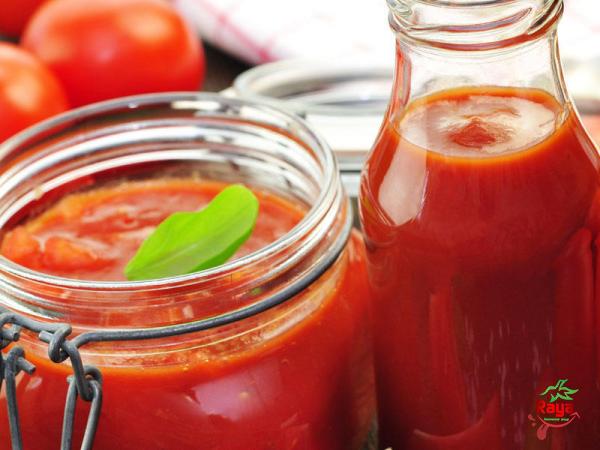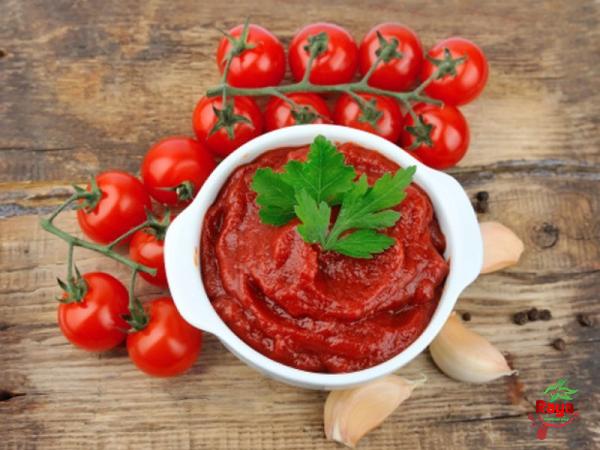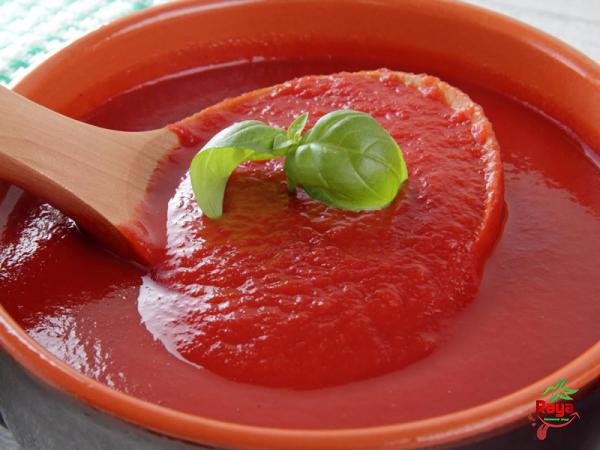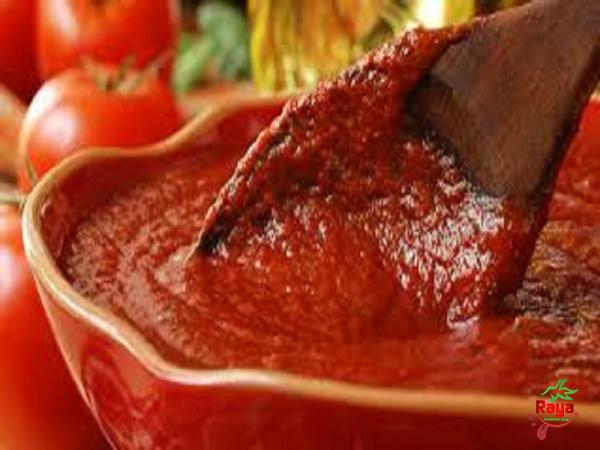Rescuing an Overly Salty Tomato Pasta Sauce Introduction: Tomato pasta sauce is a popular and versatile ingredient that adds flavor and depth to a wide range of pasta dishes. However, even the most seasoned cooks can sometimes find themselves with a sauce that is too salty. While this can be disheartening, there are several simple but effective methods to salvage a salty sauce and restore it to its perfect balance of flavors. This article will outline various techniques and ingredients you can use to rectify a tomato pasta sauce that has been oversalted. 1. Dilution Method: One of the most straightforward ways to reduce the saltiness of a tomato pasta sauce is to dilute it with additional liquid. This can be achieved by adding more of the base ingredients or incorporating liquids such as water, broth, or tomato juice. By increasing the overall volume of the sauce, you will dilute the salt and achieve a more balanced flavor profile. However, keep in mind that this method may also dilute other flavors, so it’s essential to taste and adjust the sauce accordingly. 2. Acidic Ingredients: Another effective technique to counteract the saltiness of a tomato pasta sauce is to introduce acidic ingredients. Acids help to balance out excessive saltiness by providing a contrasting flavor note. Common acidic ingredients that work well in tomato-based sauces include lemon juice, vinegar (such as balsamic or red wine vinegar), or citrus zest. Start by adding small amounts of acid and gradually increase as needed, tasting along the way to avoid over-acidifying the sauce. 3. Sweetening Agents: In addition to acidity, sweetness can also help to mellow out the saltiness of a tomato pasta sauce. Sweetening agents such as sugar, honey, or natural sweeteners like grated carrots or bell peppers can counterbalance the saltiness and enhance the overall flavor. Similar to the addition of acid, it is crucial to add sweetness gradually, tasting periodically to ensure the desired flavor is achieved without making the sauce overly sweet.

tomato paste
 4. Potatoes or Bread: Potatoes and bread can act as absorbers of excess salt when added to a tomato pasta sauce. Simply peel and chop a raw potato or toss in a few slices of bread, and simmer the sauce for about 15-20 minutes. The starchy carbohydrates found in potatoes and bread can help to absorb some of the salt, resulting in a less salty sauce. Remember to remove the potatoes or bread before serving the sauce. 5. Balance with Unsalted Ingredients: If dilution or the addition of other ingredients isn’t sufficient, you can try balancing the saltiness by introducing more unsalted ingredients to the sauce. This can include additional tomatoes, vegetables, or protein sources like ground meat or seafood, depending on the nature of your sauce. The neutral elements will help spread the saltiness throughout the dish, making it less noticeable. 6. Cream or Dairy: Cream or dairy-based ingredients, such as milk, yogurt, or cream itself, can help neutralize the excessive saltiness in a tomato pasta sauce. These ingredients add richness and creaminess to the sauce while reducing the intensity of the salt. However, keep in mind that this method is best suited for creamy tomato sauces and may not be suitable for all pasta sauce recipes. 7. Spices and Herbs: A strategic use of herbs and spices can help mask or distract from the saltiness in a tomato pasta sauce. Strongly flavored herbs like basil, oregano, thyme, or rosemary can help to diminish the dominant salty taste. Additionally, spices such as garlic, black pepper, cinnamon, or nutmeg can add complexity and depth of flavor, diverting attention away from the saltiness. Experiment with different combinations to find the right balance for your sauce. 8. Tomato Paste: While it may seem counterintuitive, adding more tomato paste can actually help reduce the saltiness of a tomato pasta sauce. The concentrated richness of tomato paste can balance out the saltiness by providing a robust flavor and additional sweetness. Start by adding small amounts and taste as you go, adjusting accordingly.
4. Potatoes or Bread: Potatoes and bread can act as absorbers of excess salt when added to a tomato pasta sauce. Simply peel and chop a raw potato or toss in a few slices of bread, and simmer the sauce for about 15-20 minutes. The starchy carbohydrates found in potatoes and bread can help to absorb some of the salt, resulting in a less salty sauce. Remember to remove the potatoes or bread before serving the sauce. 5. Balance with Unsalted Ingredients: If dilution or the addition of other ingredients isn’t sufficient, you can try balancing the saltiness by introducing more unsalted ingredients to the sauce. This can include additional tomatoes, vegetables, or protein sources like ground meat or seafood, depending on the nature of your sauce. The neutral elements will help spread the saltiness throughout the dish, making it less noticeable. 6. Cream or Dairy: Cream or dairy-based ingredients, such as milk, yogurt, or cream itself, can help neutralize the excessive saltiness in a tomato pasta sauce. These ingredients add richness and creaminess to the sauce while reducing the intensity of the salt. However, keep in mind that this method is best suited for creamy tomato sauces and may not be suitable for all pasta sauce recipes. 7. Spices and Herbs: A strategic use of herbs and spices can help mask or distract from the saltiness in a tomato pasta sauce. Strongly flavored herbs like basil, oregano, thyme, or rosemary can help to diminish the dominant salty taste. Additionally, spices such as garlic, black pepper, cinnamon, or nutmeg can add complexity and depth of flavor, diverting attention away from the saltiness. Experiment with different combinations to find the right balance for your sauce. 8. Tomato Paste: While it may seem counterintuitive, adding more tomato paste can actually help reduce the saltiness of a tomato pasta sauce. The concentrated richness of tomato paste can balance out the saltiness by providing a robust flavor and additional sweetness. Start by adding small amounts and taste as you go, adjusting accordingly.
Specifications of tomato paste
 9. Start Over: Lastly, if all else fails and the sauce is beyond saving, sometimes the best option is to start over. It can be frustrating to discard a sauce you’ve invested time and effort into, but starting with a fresh batch of ingredients ensures that you have complete control over the salt level and other flavors. Take this as an opportunity to learn from the experience and make any necessary adjustments to your cooking process. Conclusion: Overly salty tomato pasta sauce doesn’t have to be a culinary disaster. With the right techniques and ingredients, you can salvage and correct the saltiness, transforming it into a perfectly balanced and flavorful sauce. Whether through dilution, adding acidic or sweetening agents, using absorbers like potatoes or bread, balancing with unsalted ingredients, incorporating cream or dairy, enhancing with spices and herbs, leveraging tomato paste, or starting from scratch, there are multiple strategies to rescue your sauce and turn it into a delightful accompaniment to your favorite pasta dishes.Title: Rescuing an Overly Salty Tomato Pasta Sauce Introduction: Tomato pasta sauce is a staple in many households, and a sauce that is too salty can be a common occurrence. As a business in the food industry, it is essential to address customer concerns and ensure their satisfaction. This article will explore the impact of an overly salty tomato pasta sauce on a business, provide strategies for rescuing the sauce, and offer suggestions for preventing saltiness in the future. 1. Understanding the Impact on Customer Satisfaction: An overly salty tomato pasta sauce can have a significant impact on customer satisfaction. Customers may find the dish unpleasant and be deterred from ordering it again. Negative reviews and word-of-mouth can harm a business’s reputation, leading to decreased customer loyalty and potential loss of business. By addressing the issue promptly and providing solutions, businesses can retain customer trust and loyalty. 2. Responding to Customer Feedback: When a customer complains about a salty tomato pasta sauce, it is crucial for businesses to respond promptly. Show empathy and acknowledge their concern. Offer a genuine apology and assure them that their feedback is valuable. Let them know that steps will be taken to rectify the situation and provide a pleasant dining experience moving forward. 3. Salvaging the Sauce: To salvage an overly salty tomato pasta sauce, businesses can employ various techniques. Dilution with additional liquid, such as water or broth, can help reduce the overall saltiness. Gradually add the liquid while tasting the sauce, adjusting until the desired balance is achieved. This approach allows businesses to salvage the sauce without compromising other flavors. 4. Altering the Recipe: Another strategy for rescuing a salty tomato pasta sauce is to alter the recipe. By increasing the proportion of other ingredients, such as tomatoes or vegetables, the saltiness can be balanced out. Additionally, incorporating robust flavors like garlic, herbs, or spices can help distract from the overpowering saltiness. 5. Offering Customizable Options: To cater to individual preferences, businesses can offer customizable options for tomato pasta sauces. This allows customers to control the level of saltiness based on their taste preferences. Providing a range of ingredients and condiments like salt, herbs, or spices on the table empowers customers to adjust the sauce to their liking.
9. Start Over: Lastly, if all else fails and the sauce is beyond saving, sometimes the best option is to start over. It can be frustrating to discard a sauce you’ve invested time and effort into, but starting with a fresh batch of ingredients ensures that you have complete control over the salt level and other flavors. Take this as an opportunity to learn from the experience and make any necessary adjustments to your cooking process. Conclusion: Overly salty tomato pasta sauce doesn’t have to be a culinary disaster. With the right techniques and ingredients, you can salvage and correct the saltiness, transforming it into a perfectly balanced and flavorful sauce. Whether through dilution, adding acidic or sweetening agents, using absorbers like potatoes or bread, balancing with unsalted ingredients, incorporating cream or dairy, enhancing with spices and herbs, leveraging tomato paste, or starting from scratch, there are multiple strategies to rescue your sauce and turn it into a delightful accompaniment to your favorite pasta dishes.Title: Rescuing an Overly Salty Tomato Pasta Sauce Introduction: Tomato pasta sauce is a staple in many households, and a sauce that is too salty can be a common occurrence. As a business in the food industry, it is essential to address customer concerns and ensure their satisfaction. This article will explore the impact of an overly salty tomato pasta sauce on a business, provide strategies for rescuing the sauce, and offer suggestions for preventing saltiness in the future. 1. Understanding the Impact on Customer Satisfaction: An overly salty tomato pasta sauce can have a significant impact on customer satisfaction. Customers may find the dish unpleasant and be deterred from ordering it again. Negative reviews and word-of-mouth can harm a business’s reputation, leading to decreased customer loyalty and potential loss of business. By addressing the issue promptly and providing solutions, businesses can retain customer trust and loyalty. 2. Responding to Customer Feedback: When a customer complains about a salty tomato pasta sauce, it is crucial for businesses to respond promptly. Show empathy and acknowledge their concern. Offer a genuine apology and assure them that their feedback is valuable. Let them know that steps will be taken to rectify the situation and provide a pleasant dining experience moving forward. 3. Salvaging the Sauce: To salvage an overly salty tomato pasta sauce, businesses can employ various techniques. Dilution with additional liquid, such as water or broth, can help reduce the overall saltiness. Gradually add the liquid while tasting the sauce, adjusting until the desired balance is achieved. This approach allows businesses to salvage the sauce without compromising other flavors. 4. Altering the Recipe: Another strategy for rescuing a salty tomato pasta sauce is to alter the recipe. By increasing the proportion of other ingredients, such as tomatoes or vegetables, the saltiness can be balanced out. Additionally, incorporating robust flavors like garlic, herbs, or spices can help distract from the overpowering saltiness. 5. Offering Customizable Options: To cater to individual preferences, businesses can offer customizable options for tomato pasta sauces. This allows customers to control the level of saltiness based on their taste preferences. Providing a range of ingredients and condiments like salt, herbs, or spices on the table empowers customers to adjust the sauce to their liking.
buy tomato paste
 6. Educating Staff: Properly trained staff plays a crucial role in preventing an overly salty tomato pasta sauce. Train chefs and kitchen staff on the importance of accurately measuring the ingredients and avoiding excessive salt in the preparation process. Implementing guidelines and ensuring consistency across all dishes will contribute to overall customer satisfaction. 7. Collaborating with Suppliers: Maintaining quality ingredients is vital in preventing saltiness in tomato pasta sauces. Collaborate with suppliers to ensure the consistency and freshness of ingredients, particularly canned tomatoes and tomato paste. Proper quality control from your suppliers is essential to ensure the base ingredients do not contribute to excessive saltiness. 8. Nutritional Information: Transparency regarding nutritional information can help customers make informed decisions about their food choices. Displaying the salt content of the tomato pasta sauce prominently on the menu or providing it upon request demonstrates a commitment to customer health and enables them to choose alternatives if they have specific dietary requirements or preferences. 9. Seeking Customer Input: Invite customers to share their feedback and suggestions on improving the tomato pasta sauce. Conduct surveys or offer comment cards to encourage their participation. Analyzing customer input can provide valuable insights into their preferences and allow businesses to make necessary adjustments to their recipes and cooking methods. 10. Testing and Quality Control: Maintaining consistently high-quality tomato pasta sauce is essential for any business. Implement rigorous testing and quality control measures to ensure that the salt levels are within acceptable limits. Develop processes to regularly taste and evaluate the sauce throughout its preparation to catch any issues before they reach the customer’s plate. 11. Continuous Improvement: Even when a tomato pasta sauce is well-balanced, there is always room for improvement. Regularly assess customer feedback and reviews to identify recurring saltiness issues. Use this information to refine recipes, adjust ingredient quantities, and improve your overall cooking process. Constantly striving for excellence will help businesses stay ahead of the competition and meet customer expectations. 12. Training and Development: Invest in ongoing training and development programs for your culinary staff to enhance their skills in creating well-balanced tomato pasta sauces. Provide resources and workshops to educate them about different herbs, spices, and flavor profiles that can contribute to a delicious sauce without relying on excessive salt. Empower your staff to experiment and develop their own signature sauces while maintaining control over salt levels. Conclusion: An overly salty tomato pasta sauce can have a significant impact on customer satisfaction and a business’s reputation. By promptly responding to customer feedback, employing strategies to salvage the sauce, and implementing preventive measures, businesses can ensure their tomato pasta sauces are consistently well-balanced and meet customer expectations. Customizable options, quality control, staff training, and continuous improvement are essential elements in providing a positive dining experience and maintaining customer loyalty. Remember, the key to success lies in acknowledging and rectifying mistakes promptly, aiming for excellence, and consistently striving to exceed customer expectations.
6. Educating Staff: Properly trained staff plays a crucial role in preventing an overly salty tomato pasta sauce. Train chefs and kitchen staff on the importance of accurately measuring the ingredients and avoiding excessive salt in the preparation process. Implementing guidelines and ensuring consistency across all dishes will contribute to overall customer satisfaction. 7. Collaborating with Suppliers: Maintaining quality ingredients is vital in preventing saltiness in tomato pasta sauces. Collaborate with suppliers to ensure the consistency and freshness of ingredients, particularly canned tomatoes and tomato paste. Proper quality control from your suppliers is essential to ensure the base ingredients do not contribute to excessive saltiness. 8. Nutritional Information: Transparency regarding nutritional information can help customers make informed decisions about their food choices. Displaying the salt content of the tomato pasta sauce prominently on the menu or providing it upon request demonstrates a commitment to customer health and enables them to choose alternatives if they have specific dietary requirements or preferences. 9. Seeking Customer Input: Invite customers to share their feedback and suggestions on improving the tomato pasta sauce. Conduct surveys or offer comment cards to encourage their participation. Analyzing customer input can provide valuable insights into their preferences and allow businesses to make necessary adjustments to their recipes and cooking methods. 10. Testing and Quality Control: Maintaining consistently high-quality tomato pasta sauce is essential for any business. Implement rigorous testing and quality control measures to ensure that the salt levels are within acceptable limits. Develop processes to regularly taste and evaluate the sauce throughout its preparation to catch any issues before they reach the customer’s plate. 11. Continuous Improvement: Even when a tomato pasta sauce is well-balanced, there is always room for improvement. Regularly assess customer feedback and reviews to identify recurring saltiness issues. Use this information to refine recipes, adjust ingredient quantities, and improve your overall cooking process. Constantly striving for excellence will help businesses stay ahead of the competition and meet customer expectations. 12. Training and Development: Invest in ongoing training and development programs for your culinary staff to enhance their skills in creating well-balanced tomato pasta sauces. Provide resources and workshops to educate them about different herbs, spices, and flavor profiles that can contribute to a delicious sauce without relying on excessive salt. Empower your staff to experiment and develop their own signature sauces while maintaining control over salt levels. Conclusion: An overly salty tomato pasta sauce can have a significant impact on customer satisfaction and a business’s reputation. By promptly responding to customer feedback, employing strategies to salvage the sauce, and implementing preventive measures, businesses can ensure their tomato pasta sauces are consistently well-balanced and meet customer expectations. Customizable options, quality control, staff training, and continuous improvement are essential elements in providing a positive dining experience and maintaining customer loyalty. Remember, the key to success lies in acknowledging and rectifying mistakes promptly, aiming for excellence, and consistently striving to exceed customer expectations.









Your comment submitted.